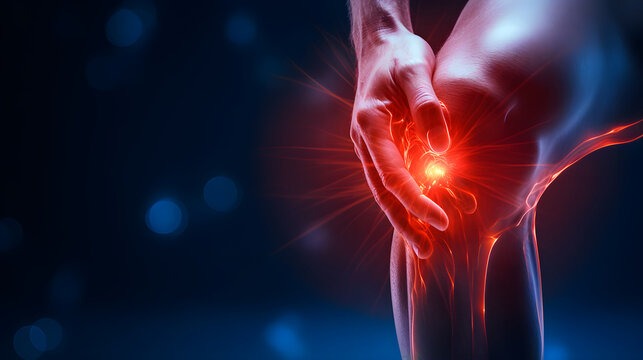knee pain treatment for ayurvedic
knee pain treatment for ayurvedic


Ayurvedic treatment for knee pain
Introduction
Knee pain is a common disease that affects millions of people worldwide, affecting their quality of life and mobility. While traditional treatments often focus on symptomatic relief through medications or surgery, Ayurveda offers a holistic approach that addresses the root cause of knee pain while promoting overall health and well-being. In this comprehensive guide, we will explore Ayurvedic principles, treatments, lifestyle modifications and treatments aimed at managing knee pain effectively.
Understanding knee pain in Ayurveda
In Ayurveda, knee pain is attributed to an imbalance in the body's doshas – vata, pitta and kapha. According to Ayurvedic philosophy, when these doshas are perturbed, they manifest as various health problems including joint pain. It is important to understand the specific dosha imbalance underlying knee pain in order to design an effective treatment plan.
Vata imbalance and knee pain
Vata dosha controls movement and is primarily responsible for the health of joints. When Vata is aggravated, it can cause dryness, stiffness and pain in the knee joints. Factors like aging, excessive physical activity, cold weather and improper diet can aggravate Vata dosha, leading to increased knee pain.
bile imbalance and knee pain
Pitta dosha regulates metabolism and inflammation in the body. When Pitta becomes unbalanced, it can result in inflammatory conditions such as arthritis, causing redness, swelling and pain in the knees. Factors such as stress, spicy foods, alcohol and exposure to extreme heat can lead to an increase in pitta.
Kapha Imbalance & Knee Pain
Kapha dosha controls structure and lubrication in the body. When phlegm increases, there is swelling, heaviness and stiffness in the knee joints. Sedentary lifestyle, excessive consumption of sweet and oily foods, lack of exercise and cold, damp weather can aggravate Kapha dosha, thereby increasing knee pain.
Ayurvedic treatment for knee pain
Ayurvedic treatment for knee pain focuses on restoring dosha-related balance, improving joint health, reducing inflammation, and strengthening the musculoskeletal system. Here are some key approaches:
Herbal Remedies:
Triphala: A combination of three fruits with powerful anti-inflammatory properties.
Shallaki (Boswellia Serrata): Reduces inflammation and supports joint health.
Guggul (Commiphora mukul): Reduces pain and stiffness in knees.
Ashwagandha (Withania somnifera): Relieves pain and promotes tissue regeneration.
Dietary Modifications:
Emphasize warm, cooked foods that pacify vata and kapha doshas.
Include anti-inflammatory foods like ginger, turmeric, garlic and leafy vegetables.
Limit your intake of processed foods, refined sugars and foods high in saturated fat.
Stay hydrated throughout the day by drinking warm water or herbal tea.
Lifestyle Adjustment:
Practice gentle yoga poses (asanas) that improve flexibility and strengthen the knees, such as Virabhadrasana (Warrior Pose) and Setu Bandhasana (Bridge Pose).
Include regular moderate exercise, such as walking, swimming or cycling, to maintain joint mobility and strengthen the surrounding muscles.
Prioritize ample rest and relaxation to reduce stress and aid overall well-being.
To prevent stress on the knees, avoid sitting or standing for long periods of time and take frequent breaks.
Ayurvedic Treatment:
Abhyanga: Self-massage with warm herbal oils to lubricate joints and promote circulation.
Pinda Sweda: Herbal poultice massage to reduce pain and stiffness in the knees.
Janu Basti: Localized oil therapy where warm medicated oil is placed over the knee joint to reduce inflammation and nourish the tissues.
Panchakarma:
Virechana: Medical purgation to eliminate toxins and excess bile from the body.
Basti: Medicinal enema therapy to balance vata and resolve joint related problems.
Nasya: Instilling herbal oils into the nose to reduce vata-related symptoms and improve circulation in the head and neck area.
Incorporating these Ayurvedic methods into your daily routine can help reduce knee pain and promote long-term joint health. However, it is essential to consult a qualified Ayurvedic practitioner to personalize your treatment plan based on your specific constitution and underlying imbalances.
conclusion
Knee pain can significantly impact one's quality of life, but Ayurveda offers a holistic approach to managing this condition by addressing the root cause and restoring balance in the body. By incorporating herbal remedies, dietary modifications, lifestyle changes, Ayurvedic treatments, and Panchakarma techniques, individuals can experience relief from knee pain while enhancing overall health and well-being. Embracing the knowledge of Ayurveda can empower individuals to take control of their joint health and live a fulfilling, pain-free life.
In short, Ayurveda offers a comprehensive toolkit for managing knee pain that goes far beyond


